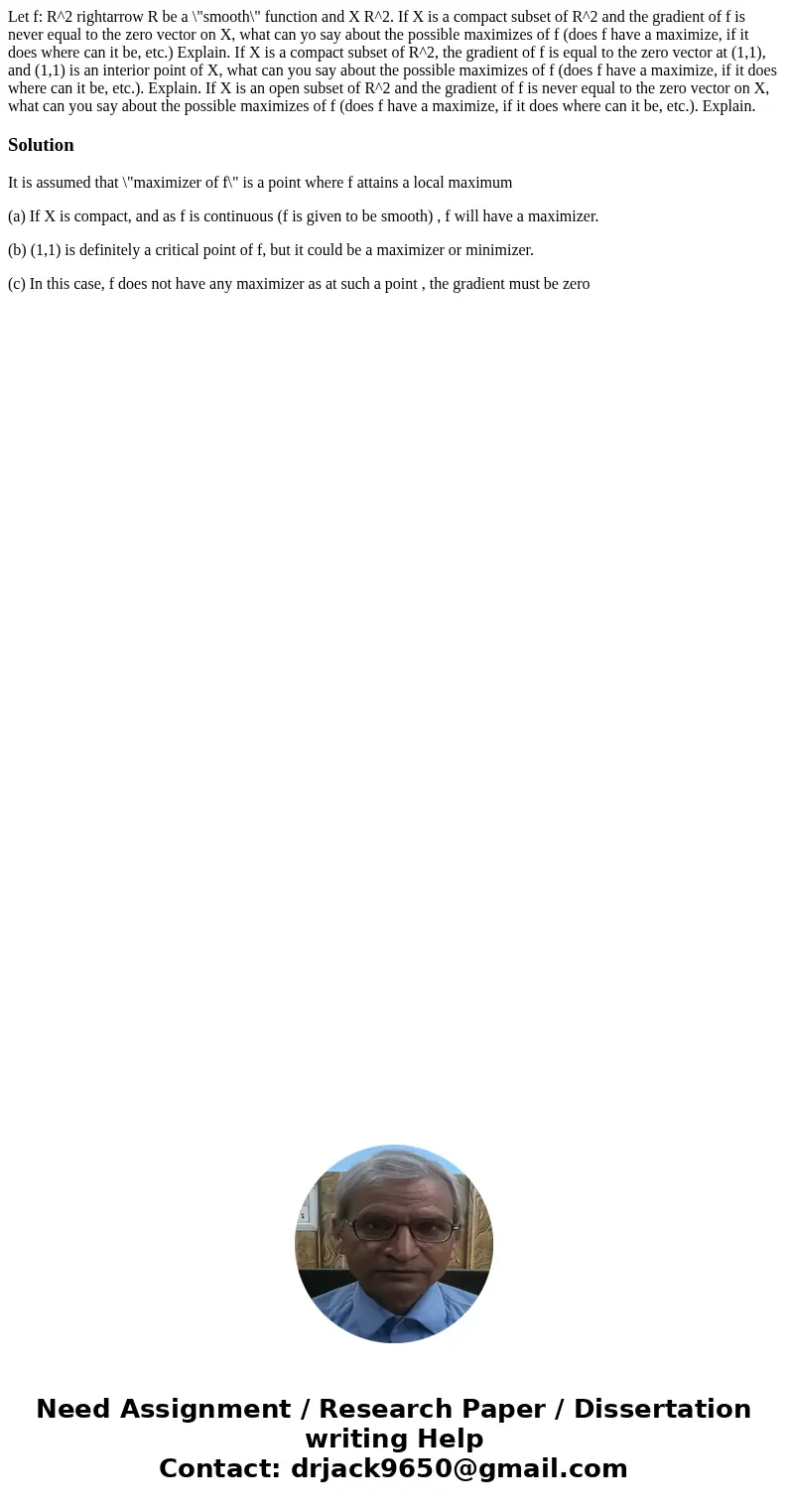Let f R2 rightarrow R be a smooth function and X R2 If X is
Let f: R^2 rightarrow R be a \"smooth\" function and X R^2. If X is a compact subset of R^2 and the gradient of f is never equal to the zero vector on X, what can yo say about the possible maximizes of f (does f have a maximize, if it does where can it be, etc.) Explain. If X is a compact subset of R^2, the gradient of f is equal to the zero vector at (1,1), and (1,1) is an interior point of X, what can you say about the possible maximizes of f (does f have a maximize, if it does where can it be, etc.). Explain. If X is an open subset of R^2 and the gradient of f is never equal to the zero vector on X, what can you say about the possible maximizes of f (does f have a maximize, if it does where can it be, etc.). Explain.
Solution
It is assumed that \"maximizer of f\" is a point where f attains a local maximum
(a) If X is compact, and as f is continuous (f is given to be smooth) , f will have a maximizer.
(b) (1,1) is definitely a critical point of f, but it could be a maximizer or minimizer.
(c) In this case, f does not have any maximizer as at such a point , the gradient must be zero

 Homework Sourse
Homework Sourse